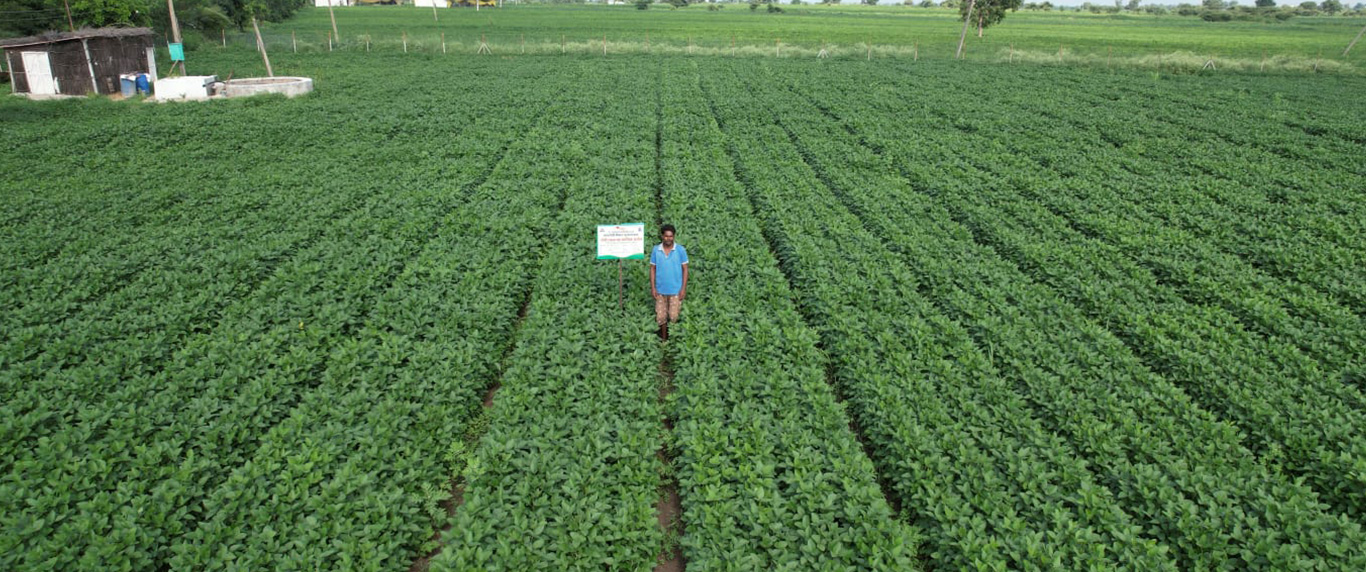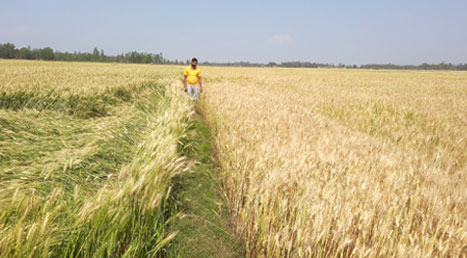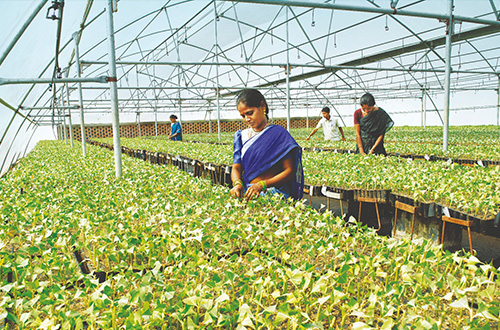
Climate change poses significant challenges to the world's food systems. Extreme and frequent weather events threaten agri productivity and food security.
In India, agriculture is a vital pillar of the economy, and the impact of climate change can adversely impact the nation's food and livelihood security, especially given its growing population. The agriculture sector must urgently find solutions to adapt to the disruptive effects of climate change like rising temperatures, erratic rainfall patterns and increasingly frequent extreme weather events. At the same time, it must transition to sustainable agricultural systems to safeguard the future of food production and ensure that no one goes hungry.
At ITC, our decades-long engagement with India's agri sector has enabled us to craft unique solutions that help farmers adapt to climate change. ITC strives to build climate resilience and de-risk farmers in its agri value chains through focused interventions like Climate Smart Agriculture.

ITC actively promotes climate-smart women farmers, service providers and women groups to help them to improve yields, incomes and resilience. This includes building capabilities of women through Farmer Field Schools, training Krishi Sakhis, promoting Women Agri Business Centres, connecting women with the ITCMAARS ecosystem for digital advisory, etc. ITC is working with 1.95 lakh women farmers and over 750 exclusive Women Farmer Field Schools across the country.
